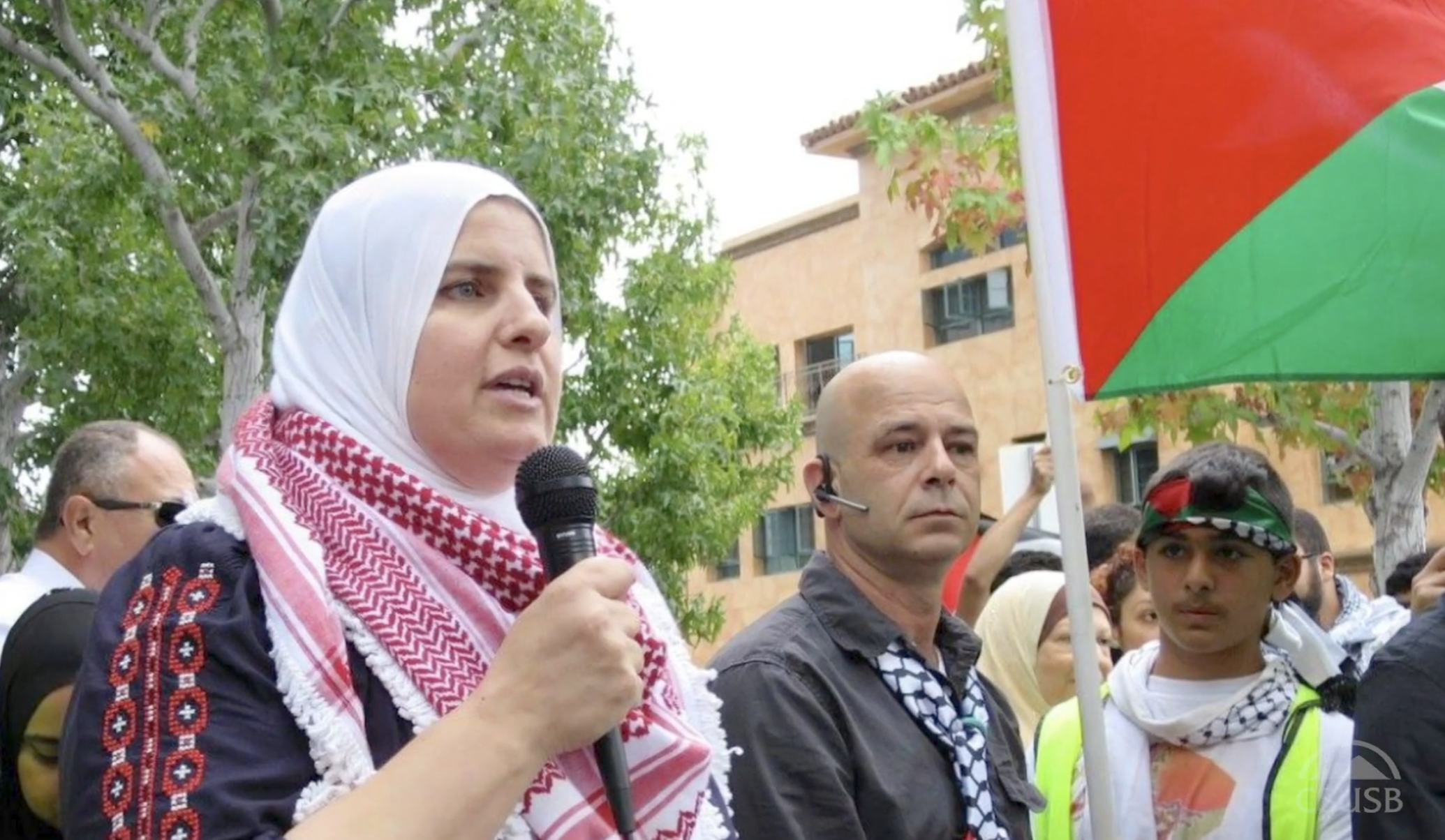“Let it be. Yes, we want them uncomfortable,” shedding light on the importance of challenging perspectives entrenched in the status quo.
As twilight fell on December 23rd, the Beverly Center transformed into a gathering place resonating with passionate voices. More than 300 individuals, unified in their plea for a ceasefire in Gaza, converged at this bustling hub. Standing amidst this assembly of fervent demonstrators was Professor Ahlam Muhtaseb, an eminent figure in the realm of media studies at CSU San Bernardino. Not only a respected academic but also holding the esteemed position of co-chair within the California Faculty Association’s Palestine, Arab, and Muslim Caucus, Dr. Muhtaseb lent her voice to the urgent call for peace.
With fervor and determination, Dr. Muhtaseb took the stage, her presence commanding attention. At the heart of her message was a plea for critical discourse within communities predominantly in support of Israel. “In order to move forward and create opportunities for real change, uncomfortable conversations are essential,” Muhtaseb asserted, emphasizing the need for divergent voices to be heard. She further urged, “Let it be. Yes, we want them uncomfortable,” shedding light on the importance of challenging perspectives entrenched in the status quo.
In articulating her stance, Dr. Muhtaseb discussed the “the elephant in the room” discourse surrounding Palestinian activism and the allegations of antisemitism leveled against those advocating for justice in Palestine. “What they are doing is weaponizing antisemitism against Palestinian activists, against activists for justice in Palestine, and distracting from real antisemitism,” she stated with conviction, her words resonating through the crowd. In plea, Dr. Muhtaseb highlighted the existence of genuine antisemitism in society, acknowledging the imperative need to confront and address it. However, she cautioned against mislabeling activism for Palestinian justice as antisemitism, expressing concern that such misinterpretation diverts attention from combating actual instances of hate speech rooted in antisemitism.

Dr. Muhtaseb’s impassioned address resonated deeply, underscoring the complexity of discussions regarding the Gaza conflict and the necessity for nuanced understanding amid divergent perspectives. Her advocacy for uncomfortable yet crucial dialogues in communities with contrasting views on the Israeli-Palestinian conflict emphasized the urgency for informed and empathetic conversations in seeking resolutions to enduring global conflicts.

